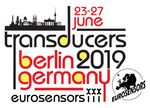10th International Congress in "Nanotechnology in Biology & Medicine"
15-17 April 2019, Graz/Austria
>>> www.bionanomed.at
Invited Speakers
(All speakers in alphabetical order)
Denis Donlagic, University of Maribor, Faculty of Electrical Engineering and Computer Science, Maribor (Slovenia)
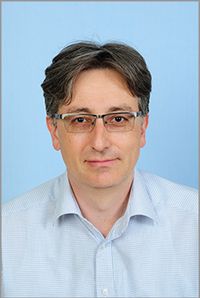
Denis Donlagic is professor at University of Maribor, Slovenia, responsible for fiber optic and photonics systems research and development. He obtained his PhDs from University of Ljubljana Slovenian and University of Strathclyde, Glasgow, UK. During 2001-2002 je joined Corning Inc. USA, as fiber research and development scientist. He authored or co-authored about 150 contributions in international journals and conferences. He is inventor of 17 US patents. During 2006-2017 he acted as a shareholder and technical adviser at Optacore d.o.o, an SME dedicated to specially fiber manufacturing. He leads/lead numerus industrial projects for leading enterprises in the field. His research interest is in fiber-optic point sensors, quasi-distributed fiber optic sensors, specialty optical fibers, fiber-micromachining, MOEMS and optoelectronic signal integration systems.
Publications, patents and grants: 15 granted US patents, nine granted Slovenian patents, Author and co-author of about 60 journal papers, mostly in top-ranked-international journals (OSA, IEEE), and more than 40 conference contributions, Successful lead of over 15 projects/grants over past 10 years.
More details about his lab >>>
Jens Ducree, DCU - Dublin City University, Fraunhofer Project Centre for Embedded Bioanalytical Systems (Ireland)
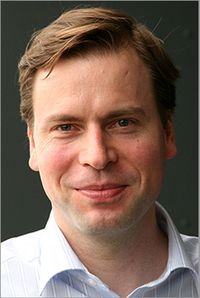
Dr. Jens Ducrée holds a Full Professorship of Microsystems in the School of Physical Sciences at Dublin City University (DCU). He is the founding director of Ireland’s first Fraunhofer Project Centre for Embedded Bioanalytical Systems at DCU (FPC@DCU) – a joint initiative of Science Foundation Ireland and Fraunhofer Gesellschaft. The main part of his research is directed towards novel microfluidic systems and associated actuation, detection, fabrication and instrumentation technologies for the integration, automation, miniaturization and parallelization of sample preparation and detection of bioanalytical assays (e.g. immunoassays, nucleic acid testing, general chemistry and cell counting). Typical applications of these next-generation “Lab-on-a-Chip” platforms are sample-to-answer systems for biomedical point-of-care and global diagnostics, liquid handling automation for the life sciences (e.g. concentration / purification and amplification of DNA / RNA from a range of biosamples), process analytical techniques and cell line development for biopharma as well as monitoring the environment, infrastructure, industrial processes and agrifood.
More details >>> www.ducree.net and also www.dcu.ie/fpc .
Jean-Michel Gerard, PHELIQS Laboratory, Institute for Nanosciences and Cryogenics, CEA and University Grenoble Alpes, Grenoble (France)
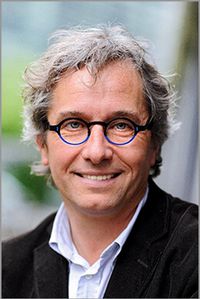
Jean-Michel GERARD received his PhD at Paris VI University in 1989. He has been in charge of quantum dot (QD) research at France Telecom R&D in Bagneux from 1995 to 2001. After joining CEA in Grenoble, he has been in charge of the Nanophysics and Semiconductors CEA-CNRS join team (2001-2005), of the Materials and Microstructures Department (SP2M, 2005-2015) and of the Quantum Photonics, Electronics and Engineering Lab (PHELIQS) since 2016. From 1997 to 2009, he has also been Physics Professor at Ecole Polytechnique, Palaiseau. J.M. Gérard has given pioneering contributions to nanophotonics (development of QD growth, single QD spectroscopy, cavity QED experiments with QDs, QD single photon sources…). His main present research topics deal with the development of optoelectronic devices for quantum technologies such as quantum light sources, photonic switches and single photon detectors. He has directed 14 PhD students, published around 300 papers indexed on the WoS (11700 citations, H=52) and has registered 13 patents. He has received the Great Prize founded by the State of the French Academy of Sciences (2005), the Quantum Device Award founded by Eudyna Corp, Japan (2008) and the Léon Brillouin Great Prize of the French Optical Society (SFO) . More details:
>>> http://inac.cea.fr/en/Phocea/Pisp/index.php?nom=jean-michel.gerard
>>> https://scholar.google.fr/citations?user=HzXue78AAAAJ&hl=fr
>>> http://www.researcherid.com/rid/B-5668-2013
>>> http://inac.cea.fr/en/index.php
Andy Miller, imec, 3D Enabled System Integration, Leuven (Belgium)
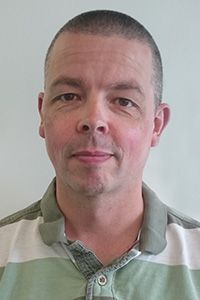
Andy Miller graduated from the University of Glasgow in 1995 with a Honours degree in Physics. He immediately started work as a process engineer at NEC Semiconductors (UK) Ltd in lithography. In 2000 he moved to Filtronic Compound Semiconductors Limited as lead lithography engineer. In 2008 he joined the Advanced Lithography program at IMEC, focused on alternative materials for Double Patterning.
In 2009 he became the Team Leader for More Than Moore lithography development at imec, quickly expanding the team to include wafer level bonding, die bonding and metrology. In 2012 he took up the position of Group Leader for technology development within the 3D Integration program. He now runs both the Advanced Packaging technology development and the Si Photonics technology development groups at imec.
Werner Magnes, Space Research Institute of the Austrian Academy of Sciences, Graz (Austria)
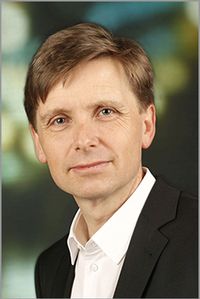
Werner Magnes is vice director of the Space Research Institute (IWF) of the Austrian Academy of Sciences. He obtained his PhD from the Graz University of Technology, A.
He has worked on the development and calibration of space borne fluxgate magnetometers since 1992. Since 2002, he is in charge of the overall magnetometer development activities of IWF. He is Co-Investigator for the ESA Rosetta/Lander (comet Tschurjumow-Gerassimenko), ESA Venus Express, NASA MMS (Earth magnetosphere), ESA BepiColombo (Mercury) and ESA J-MAG/JUICE (Jupiter) magnetometers as well as project manager of the SOSMAG space weather magnetometer aboard the South Korean GEO-KOMPSAT 2A satellite.
Since 2008 he has managed the technology uplift of a quantum interference magnetometer which is developed in close cooperation with the Institute of Experimental Physics of the Graz University of Technology. The maiden flight of this newly developed instrument took place aboard a Chinese science mission in February 2018.
Dr. Magnes is also involved in lecturing about audio signal processors and development of space qualified hardware at the Graz University of Technology.
More Info:
>>> http://www.iwf.oeaw.ac.at/en/home/
>>> http://www.iwf.oeaw.ac.at/en/research/flight-instruments/spacenbspmagnetometers/
>>> http://www.iwf.oeaw.ac.at/en/user-site/werner-magnes/
Ralf Moos, University of Bayreuth, Bayreuth Engine Research Center, Department of Functional Materials, Bayreuth (Germany)
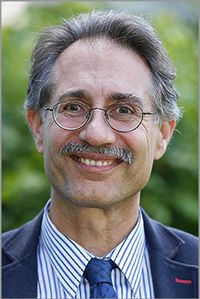
Ralf Moos is a full professor (chair) at the University of Bayreuth, Germany, where he heads the Department of Functional Materials. Before that, he worked in several R&D positions at the Daimler AG in the fields of novel exhaust gas sensors incl. interactions between sensors and catalytic converters, sensors for fuel-cell cars, and sensors for fuels and lubricants. His present research interests focus on exhaust gas sensors, solid state gas sensor materials, novel solid state gas sensor principles, solid state gas sensor technology, gas sensor modeling, and on the development of transducers for sensors. Novel concepts to replace classical sensors by using catalysts directly as sensors are a unique working field, on which will be reported in this conference. He has more than 500 publications (journals, conferences, book contributions) in these fields and over 90 patents were disclosed listing him as an inventor. Presently, he is chairing the executive steering committee of the International Meeting on Chemical Sensors (IMCS) and he is editor of Sensors and Actuators B: Chemical.
More Info:
>>> http://www.funktionsmaterialien.de/index-en.php?page=230-en-prof-moos
>>> http://www.funktionsmaterialien.de/index-en.php?page=340-en-publikationen
>>> http://www.funktionsmaterialien.de
>>> http://www.funktionsmaterialien.de/index-en.php?page=210-en-ueber-uns
Roisin Owens, University of Cambridge, Chemical Engineering and Biotechnology, Cambridge (United Kingdom)
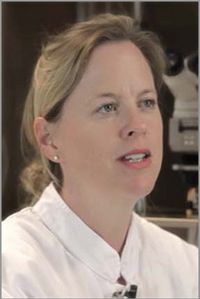
Dr. Róisín M. Owens is a University Lecturer at the Dept. of Chemical Engineering and Biotechnology in the University of Cambridge. She received her BA in Natural Sciences (Mod. Biochemistry) at Trinity College Dublin, and her PhD in Biochemistry and Molecular Biology at Southampton University. She carried out two postdoc fellowships at Cornell University, on Mycobacterium tuberculosis and on rhinovirus therapeutics. From 2009-2017 she was a group leader in the dept. of bioelectronics at Ecole des Mines de St. Etienne, on the microelectronics campus in Provence. Her current research centers on application of organic electronic materials for monitoring biological systems in vitro, with a specific interest in studying the gut-brain-microbiome axis. She has received several awards including the European Research Council starting (2011), proof of concept grant (2014) and consolidator (2016) grants, a Marie Curie fellowship, and an EMBO fellowship. In 2014, she became principle editor for biomaterials for MRS communications (Cambridge University Press), and she serves on the advisory board of Advanced BioSystems and Journal of Applied Polymer Science (Wiley). She is author of 50+ publications.
More details >>> https://www.ceb.cam.ac.uk/directory/roisin-owens and also
https://www.ceb.cam.ac.uk/research/groups/best
Susan Trolier-McKinstry, Penn State University, Ceramic Science and Engineering, Electrical Engineering, Nanofabrication Facility & Keck Smart Materials Integration Laboratory, Center for Dielectrics and Piezoelectrics, Pennsylvania (USA)
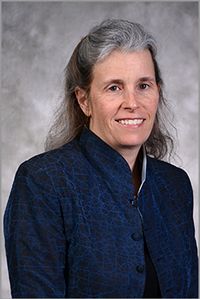
1. Ph.D.: Ceramic Science from The Pennsylvania State University, 1992
2. M. S.: Ceramic Science from The Pennsylvania State University, 1987
3. B. S.: Ceramic Science and Engineering from The Pennsylvania State University, 1987 (honors)
Research interests are centered around structure-processing-property relationships in electroceramics, dielectric and piezoelectric thin films, texture development in piezoelecric ceramics and spectroscopic elipsometry. Prof. Trolier-McKinstry’s group is developing sensors and actuators that are compatible wtih CMOS electronics (and hence low driving voltage). The work includes fundamental studies on the factors that control domain wall contributions to the properties and the role of octahedral tilt in influencing response. The group also emphasizes processing science, including thin film growth of high performance materials on different substrats and damage-free patterning of complex oxides. Finally, the gropu also works piezoelectronic microelecromechanical systems, including accelerometers, pumps, switches, adaptive optics components, X-ray telescope, energy harvesters, and ultrasound systems with close-coupled electronics.
More details:
>>> http://www.matse.psu.edu/directory/faculty/susan-trolier-mckinstry
>>> https://www.mri.psu.edu/mri/contact-mri/faculty-websites/susan-trolier-mckinstry-group
>>> https://www.mri.psu.edu/mri/contact-mri/faculty-websites/susan-trolier-mckinstry-group

















